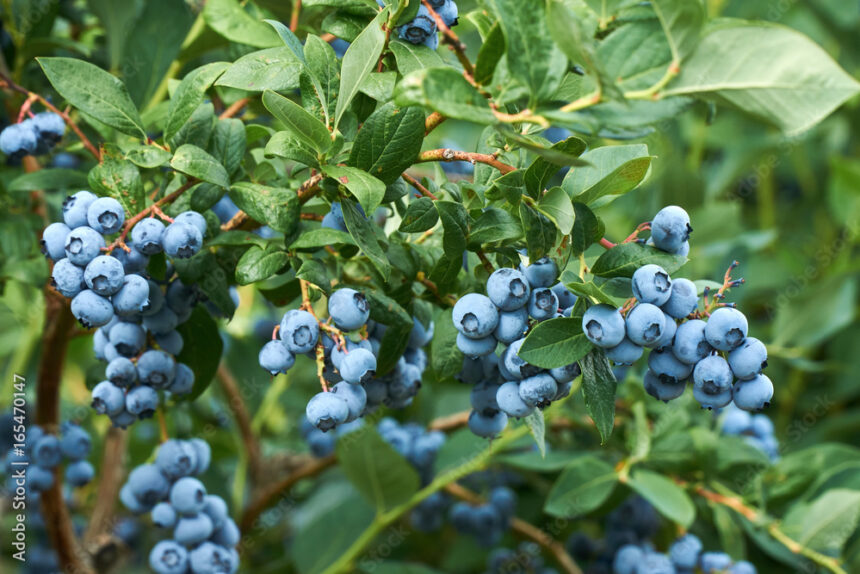When growing blueberries in South Africa, there are several infections and diseases that you should watch out for. Here are some common ones:
- Phytophthora Root Rot:
This soil-borne fungal disease can affect blueberry plants, causing root rot and wilting. It thrives in waterlogged or poorly drained soil. To prevent Phytophthora, ensure good drainage and avoid over-irrigation. Fungicides and resistant cultivars can also help manage the disease. - Anthracnose:
Anthracnose is a fungal disease that affects various parts of the blueberry plant, including the berries, stems, and leaves. Symptoms include brown spots on the berries, twig dieback, and leaf spots. Proper sanitation, such as removing infected plant debris, and applying fungicides can help control anthracnose. - Botrytis Fruit Rot:
Botrytis cinerea is a fungal pathogen that causes fruit rot in blueberries. It typically affects ripe or overripe berries, causing them to develop a gray mold. Proper pruning and spacing between plants to improve air circulation can reduce the incidence of Botrytis. Fungicides may be necessary in severe cases. - Mummy berry is a fungal disease that primarily affects blueberry fruit. Infected berries shrivel, turn brown, and become “mummified.” The fungus overwinters in fallen berries and emerges in the spring. Proper sanitation, such as removing infected mummies and using protective fungicides, can help manage mummy berry.
- Viruses:
Blueberries can be susceptible to several viral diseases, including Blueberry scorch virus (BlScV) and Blueberry shock virus (BlShV). These viruses can cause stunted growth, leaf yellowing, and reduced fruit quality. Planting virus-free stock and controlling insect vectors, such as aphids, can help prevent viral infections.
It’s important to note that the specific infections and diseases prevalent in South Africa may vary depending on the region and local conditions. It is advisable to consult with local agricultural extension services or experienced blueberry growers in your area for region-specific guidance on disease management.







